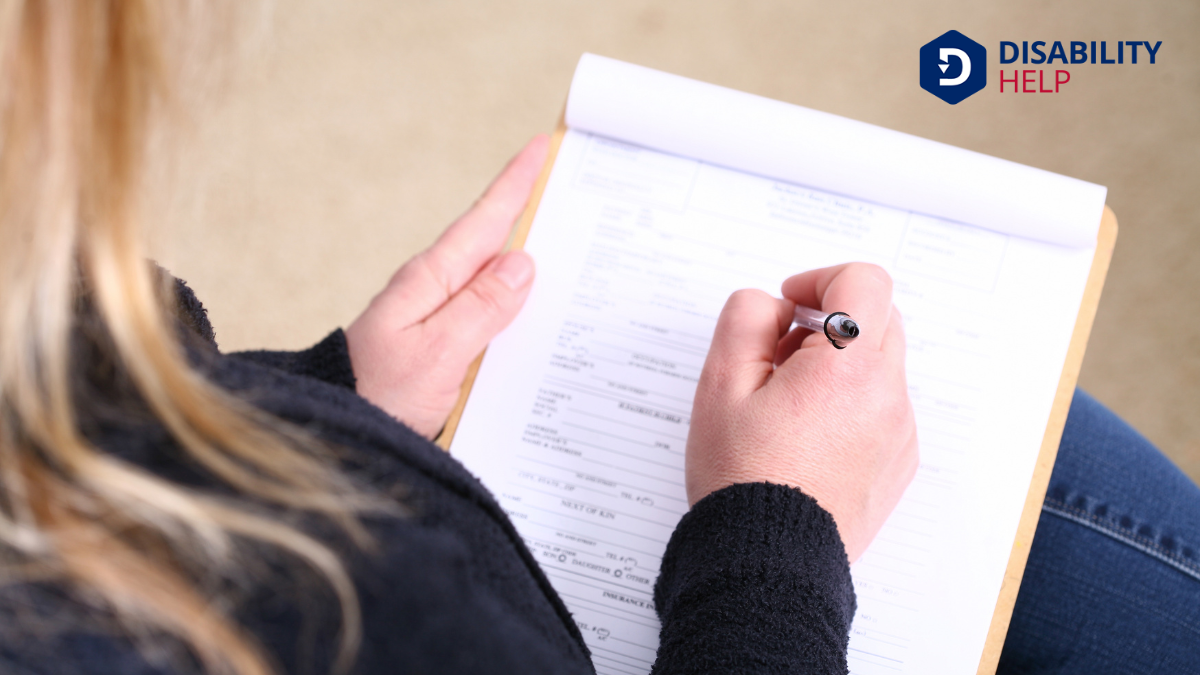When you're on workers' comp, there are some critical pitfalls to avoid that could jeopardize your benefits. Have you ever wondered what actions might accidentally put your claim at risk? It's not just about sitting back and recovering. You need to be mindful of your activities and obligations during this period. From reporting income to following medical advice, the path is riddled with potential missteps. Curious about what you should be cautious of?
Key Takeaways
- Do not fail to report any new income or employment to avoid legal issues.
- Avoid ignoring medical advice or skipping scheduled medical appointments.
- Do not return to work without obtaining the necessary medical clearance.
- Refrain from falsifying information or misrepresenting the severity of your injury.
- Avoid engaging in risky activities that can worsen your condition or impact benefits.
Working for Another Employer
Many people wonder if they can work for another employer while receiving workers' comp benefits. I've been there, questioning whether I could take a side job.
It's vital to know that working for another employer can be tricky. Workers' compensation is designed to support you while you recover. If you're earning wages from a new job, it might affect your benefits.
You must report any income changes to avoid potential legal issues. If you can work within your medical restrictions, part-time work might be possible, but it's important to stay transparent with your workers' comp case manager.
Always consult your attorney or case manager before starting any new employment to guarantee you're not jeopardizing your benefits.
Ignoring Medical Advice

When you're dealing with a workers' comp claim, ignoring medical advice can jeopardize your recovery and your benefits.
It's essential to follow your treatment planA detailed plan developed by healthcare professionals to treat a specific health condition, outlinin..., attend all scheduled appointments, and resist the urge to self-medicate.
Trusting your healthcare provider's guidance not only supports your health but also strengthens your claim.
Follow Treatment Plan
Although it might seem tempting to deviate from your prescribed treatment plan, doing so can seriously jeopardize your workers' compensation benefits.
I understand the frustration that comes with lengthy recovery processes, but ignoring medical advice can lead to complications in your healing and, ultimately, your claim. Your doctor provides a treatment plan specifically designed to help you recover efficiently and safely.
If you choose to ignore this plan, insurance companies may argue that you're not committed to your recovery, potentially reducing or denying benefits. It's essential to follow your doctor's orders closely.
If there’s an issue with the treatment, communicate with your healthcare provider. They can adjust the plan to better suit your needs, ensuring a smoother recovery process.
Attend Scheduled Appointments
Keeping up with your treatment plan isn't just about following doctor's orders; attending all scheduled appointments is just as vital.
When you're on workers' comp, consistent attendance at medical appointments demonstrates your commitment to recovery. It also provides your healthcare provider with the necessary information to adjust your treatment plan as needed.
Skipping appointments can delay your recovery, and it might even raise doubts about the validity of your claim. I know it can be tempting to miss an appointment, especially if you're feeling better, but each session plays a significant role in tracking your progress and ensuring you're on the right path.
Make scheduling and attending these appointments a priority to support your health and maintain your benefits.
Avoid Self-Medicating
Even though it might seem like a quick fix, it’s vital to avoid self-medicating when you're on workers' comp. Trust me, I know how tempting it can be to manage pain or discomfort on your own.
However, doing so can complicate your recovery and potentially jeopardize your claim. Your healthcare provider has crafted a treatment plan tailored to your specific needs, and deviating from it can lead to unintended consequences.
Ignoring medical advice not only risks your health but can also send the wrong message to insurance companies. They might interpret self-medicating as non-compliance, which can affect your benefits.
Stick to the prescribed regimen, and communicate openly with your doctor about any concerns. It’s pivotal for a smooth recovery and successful claim process.
Failing to Report Income
When you don’t report income while receiving workers' comp, you could face serious legal consequences, including fines or even criminal charges.
This failure not only affects your eligibility but could reduce or terminate your benefits altogether.
It’s essential to understand the reporting requirements to protect yourself from these potential pitfalls.
Legal Consequences Explained
If you're considering not reporting income while receiving workers' compensation benefits, it's crucial to understand the legal consequences you might face.
Failing to disclose earnings is considered fraud. You could face severe penalties, including fines and even jail time. The authorities take this issue seriously, and getting caught can have long-lasting effects on your life.
Besides criminal charges, there's also the possibility of having to repay the benefits you received, which can be financially overwhelming.
It’s vital to remember that transparency is key. If you earn any income while on workers' comp, always report it accurately. This honesty protects you from legal trouble and guarantees that you're complying with the law.
Don’t risk your future over unreported income.
Impact on Benefits
In addition to the legal consequences, failing to report income while receiving workers' compensation can greatly impact your benefits.
You might think it's harmless, but not reporting can lead to reduced or even terminated benefits. The system is designed to help those truly in need due to work-related injuries.
When you don't report additional income, you're fundamentally misrepresenting your financial situation, which can result in overpayment. The authorities may demand repayment of those benefits, creating financial stress.
This can also affect your credibility and complicate future claims. It's essential to maintain transparency.
Reporting Requirements
Although it might seem like a minor oversight, failing to report income while on workers' compensation is a serious issue that can have significant consequences.
Let me break down why this is important for you to understand:
- Legal Repercussions: Not disclosing income can lead to charges of fraud, which can result in fines or even jail time.
- Benefit Reduction: Your workers' comp benefits could be reduced or terminated if unreported income is discovered.
- Financial Penalties: You might be required to pay back benefits you received while failing to report income.
- Loss of Credibility: This can damage your credibility, making it difficult to receive future benefits or assistance.
Understanding these points guarantees you're informed and can avoid these potential pitfalls.
Engaging in Risky Activities
When considering workers' compensation claims, it's vital to understand how engaging in risky activities can impact eligibility. As someone on workers' comp, I know that participating in activities like extreme sports or heavy lifting might jeopardize my benefits. The reason is simple: insurance companies may see these actions as evidence that I'm not as injured as I claim or that I'm not taking my recovery seriously.
I often remind myself that engaging in risky activities can lead to further injuries or worsen my current condition, potentially leading to a denial of my claim.
Misrepresenting Injury Severity

Misrepresenting the severity of an injury in a workers' comp claim can have serious consequences. When you're tempted to exaggerate, remember that honesty is vital. Here are some potential pitfalls if you misrepresent your injury:
- Legal Repercussions: Falsifying information can lead to legal action against you, including fines and possibly criminal charges.
- Loss of Benefits: If discovered, your workers' comp benefits might be terminated, leaving you without necessary financial support.
- Employment Consequences: Your employer might lose trust in you, affecting your job security and future opportunities.
- Ethical Concerns: Misrepresenting your injury challenges your integrity and can harm your reputation, both personally and professionally.
Being truthful guarantees you receive appropriate care and maintains trust with your employer and insurer.
Skipping Medical Appointments
It's important to maintain honesty in your workers' comp claim, and part of that honesty involves attending your medical appointments. Skipping these appointments can jeopardize your claim. When you miss scheduled visits, it may appear as if you’re not committed to your recovery. This could lead insurers to question the legitimacy of your injury or the severity of your condition.
I understand life gets busy, and unexpected events can arise. However, prioritizing your health and showing up for medical evaluations is essential. If you must reschedule, communicate promptly with your healthcare provider and inform your claims adjuster. This illustrates responsibility and transparency.
Traveling Without Notice
Although it might seem harmless to travel without notifying your insurer or employer, doing so can greatly impact your workers' comp claim. When you're on workers' comp, certain rules and expectations must be followed. Traveling without notice can raise suspicions about the legitimacy of your injury or your commitment to recovery.
Here are a few reasons why informing them is vital:
- Treatment AccessibilityThe design of products, devices, services, or environments to be usable by people with disabilities....: You might miss important medical appointments, hindering recovery.
- Claim Integrity: Insurers may doubt the severity of your injury if you're seen traveling.
- Legal Obligations: Some policies require you to remain within a specific area.
- Communication: Keeping your employer informed helps maintain trust and transparency.
Always communicate travel plans to protect your claim and guarantee a smooth recovery process.
Falsifying Information

When you falsify information on your workers' comp claim, you risk more than just your benefits; you jeopardize your entire case and credibility.
It might seem tempting to exaggerate your injury or misrepresent facts to secure a better outcome, but doing so can have serious consequences. Not only could you lose your benefits, but you might also face legal repercussions, including charges of fraud.
Trust me, it's not worth it. Honesty is always the best policy. Providing accurate and truthful information guarantees your claim is processed smoothly and fairly.
If you're ever unsure about what to include in your claim, seek guidance from a professional. Maintaining integrity in your claim supports your credibility and protects your rights.
Returning to Work Without Clearance
Returning to work without receiving proper medical clearance can severely impact your recovery and your workers' comp claim. It’s tempting to jump back in, but there are significant risks involved. Here’s why you should wait for that all-clear:
- Health Risks: Without medical clearance, you might worsen your injury, leading to longer recovery or permanent damage.
- Claim Complications: Returning too soon can jeopardize your workers' comp benefits. Insurers might argue you’re not as injured as claimed.
- Job Security: Employers may expect you to perform at full capacity, risking further injury or job loss if you can't meet expectations.
- Legal Consequences: Disregarding medical advice could lead to denial of benefits, as it may be seen as non-compliance with treatment.
Waiting guarantees both your health and claim remain protected.
Conclusion
In summary, while on workers' comp, it's essential to stay honest and transparent. Don't risk your benefits by working for another employer without reporting income, skipping medical appointments, or ignoring your doctor's advice. Avoid risky activities that could delay your recovery, and always get medical clearance before returning to work. Traveling without notice or misrepresenting your injury can raise suspicions. By following these guidelines, you'll protect your benefits and support a smoother recovery process.






